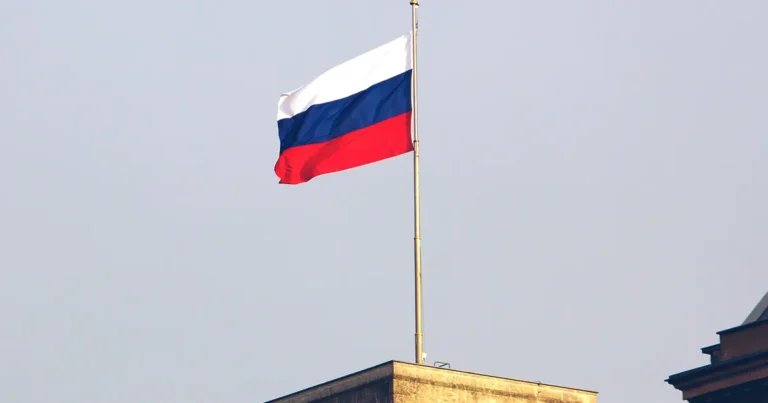4-6-2025 – Russian law enforcement agencies have crossed a significant threshold in digital asset confiscation, successfully seizing Bitcoin holdings from individuals engaged in illicit cryptocurrency mining operations. This development represents a notable shift in how authorities approach virtual currency enforcement within the Federation’s evolving regulatory landscape.
The breakthrough case involves approximately 7 million rubles ($88,570) worth of Bitcoin confiscated from a former electricity sector executive in the Amur Oblast, marking what appears to be a standardised approach to digital asset seizures by investigative authorities.
Energy sector insider exploits infrastructure knowledge
The suspect, previously employed as head of technological connection services at the Far Eastern Distribution Company’s Amur branch, allegedly leveraged intimate knowledge of electrical grid systems to orchestrate a sophisticated power theft operation. DRSC, the regional electrical distribution provider responsible for power transmission across networks in Russia’s Far East, became an unwitting victim of insider exploitation.
Investigators determined that the individual conducted cryptocurrency mining operations within his residential premises, utilising specialised knowledge of electrical network connections to bypass standard metering systems. The scheme, executed during 2024, involved creating unauthorised connections to company electrical facilities, effectively siphoning power resources for personal Bitcoin mining ventures.
Authorities calculated that the stolen electricity exceeded 3.5 million rubles ($44,334) in value, representing a substantial theft of corporate resources. The case exemplifies the growing intersection between traditional infrastructure crimes and emerging digital currency opportunities.
Regulatory transformation enables asset recovery
The successful confiscation addresses a longstanding challenge faced by Russian law enforcement, as Bitcoin previously lacked formal legal recognition within the Federation’s judicial framework. However, recent legislative developments have begun treating digital currencies as property for legal seizure purposes, fundamentally altering how authorities can respond to cryptocurrency-related crimes.
This legal evolution gained momentum through governmental proposals developed in April, which sought to grant courts and investigative bodies enhanced powers over digital asset confiscation in criminal proceedings. The proposed framework aims to clarify seizure processes whilst addressing concerns regarding citizens’ rights protection.
The legislative momentum reflects broader governmental recognition that digital assets require specific legal treatment rather than existing within regulatory grey areas. Policy-makers have demonstrated consistent support for measures that would formally classify cryptocurrencies as intangible property within criminal justice contexts.
Federal coordination demonstrates systematic approach
The investigation involved collaboration between the Investigative Committee (SKR), Russia’s primary federal investigating authority and anti-corruption agency, and the Federal Security Service. This inter-agency cooperation suggests that cryptocurrency-related investigations now receive prioritised treatment and dedicated resources.
The same individual faced additional corruption charges related to accepting bribes from regional business operators seeking approval for electricity-related documentation, indicating a pattern of abuse spanning multiple aspects of his professional responsibilities.
Precedent-setting cases signal policy direction
This Amur Oblast seizure joins several high-profile cryptocurrency confiscations that appear to follow the proposed legal framework’s principles, even before formal legislative approval. Notably, authorities have recovered $8.2 million worth of cryptocurrency from the Hydra darknet marketplace server operator, demonstrating the mechanism’s application across different criminal contexts.
Another significant case involved the confiscation of 1,032 Bitcoin from former Investigative Committee investigator Marat Tambiev, who received a 16-year prison sentence for accepting Bitcoin bribes from an international fraud network. These cases collectively establish precedents for how Russian courts interpret cryptocurrency within existing criminal law frameworks.
Broader mining regulations create complex environment
The seizure occurs against a backdrop of evolving cryptocurrency mining regulations within Russia. The government has recently implemented a six-year ban on cryptocurrency mining across ten regions due to high power consumption concerns, whilst simultaneously legalising Bitcoin mining from November 2024 under strict regulatory conditions.
Previous enforcement actions have targeted illegal mining operations, including the seizure of over 3,200 mining rigs in Siberian raids, suggesting systematic efforts to distinguish between authorised and unauthorised cryptocurrency production activities.
The regulatory complexity reflects Russia’s strategic approach to digital assets, wherein cryptocurrency payments for international trade have been permitted to counter sanctions effects, whilst domestic cryptocurrency use remains heavily restricted.


